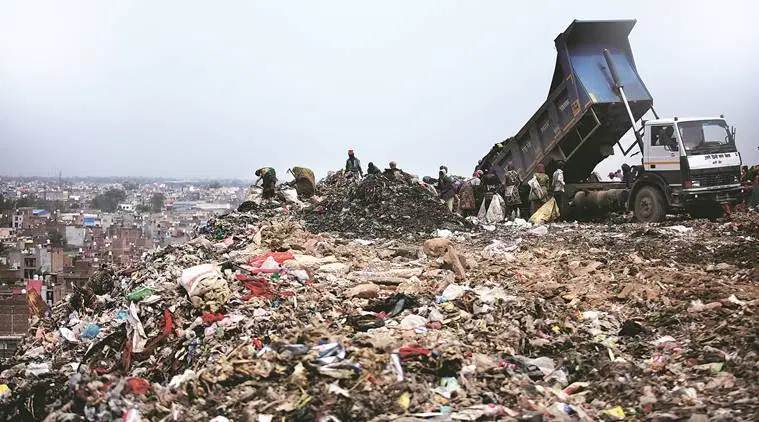- India
- International
Odisha: Waste management, Rs 10 per home in Ganjam district
The GPs included in the initial phase are Chamakhandi in Chhatrapur block, Malada in Ganjam, Nandika in Hinjili, Langaleswar, Pathara, Kanheipur, Keshpur, Srikrushnasaranpur, Kairasi and Bikrampur in Khallikote block.
 Each GP will prepare an action plan for the management of solid waste after evaluating local practices. (Picture for representational purpose)
Each GP will prepare an action plan for the management of solid waste after evaluating local practices. (Picture for representational purpose)
Odisha’s Ganjam district is witnessing a pioneering effort to implement solid waste management in rural areas. The move comes in the wake of a National Green Tribunal order, asking Solid Waste Management Rules (2016) being employed beyond the urban areas. As such, in the first phase, the sanitation regulations will be enforced in 10 Gram Panchayats of Ganjam by September 30, while the whole district will be covered by March 31, 2020. The GPs included in the initial phase are Chamakhandi in Chhatrapur block, Malada in Ganjam, Nandika in Hinjili, Langaleswar, Pathara, Kanheipur, Keshpur, Srikrushnasaranpur, Kairasi and Bikrampur in Khallikote block.
Each GP will prepare an action plan for the management of solid waste after evaluating local practices. A levy will be imposed to collect revenue to implement the entire programme. While Rs 10 per month will be collected from each rural household for garbage disposal, hotels, lodgings, banks, police stations, government and private offices, hospitals and educational institutions will be charged with Rs 500. A sum between Rs 100 to Rs 500 will be collected from business establishments. Residential schools and colleges, village haats, bus stands, railway stations and meeting venues will be charged with Rs 2,000 per month. These amounts were decided after wide-ranging discussions with all stakeholders such as the Panchayati Raj Institutions, the district officials and NGOs.
Apart from levies, violators will be penalised as well. Dumping plastic, polythene and non-biodegradable items will attract fine of Rs 100 to Rs 400 for shopkeepers, Rs 1000 for hotels, lodgings, food stalls, chicken and mutton shop owners, Rs 400-Rs 1,600 for small and medium industrial units, Rs 4,000 for kalyan mandaps and Rs 20,000 for large industries.
“The idea is not just to punish people or collect fines, but to convey to them that this initiative of waste management needs to be brought under a mission mode. The aim is to make them deeply involved in the process”, assures Siddharth Shankar Swain, the District Rural Development Agency (DRDA) Project Director. The money collected will be deposited in special accounts at the GP level.
But officials concede that collecting levies would be challenging. “Any sort of change through a government initiative needs time before it is accepted by the public,” says Robi Rao, a livelihood and environment activist. District officials are concerned that the collection of levy at the individual household level will be labour intensive. “Our strength, fortunately, is that we have required manpower through our self help group network, informal systems called kotho (village development committees),” says Swain. Yet, he agrees it will not be easy to collect funds and keep track of deposits on a vast scale, especially since the process will be largely offline.
Apr 26: Latest News
- 01
- 02
- 03
- 04
- 05







































